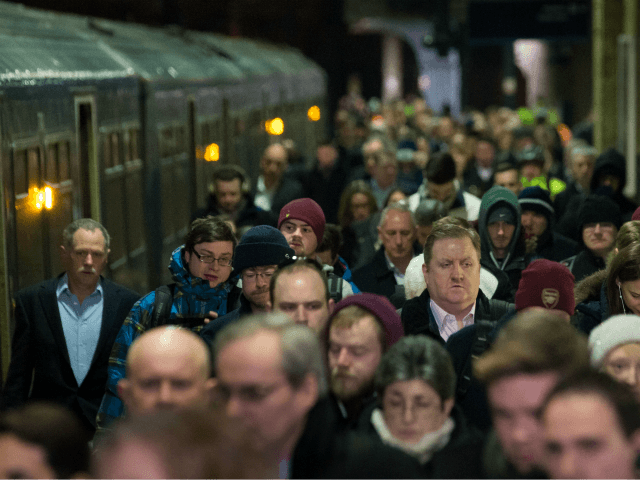The latest release of Office for National Statistics (ONS) data shows wages grew faster than inflation, but many new jobs over the past year had gone to immigrants to the UK.
The ONS figures show the number of adults in work from October to December 2016 reached almost 32 million, an increase of 300,000 compared with the same period a year before. The total number of people claiming unemployment was recorded as 1.6 million.
Though the number of people registered as unemployed plunged by 7,000 during the period, this wasn’t enough to change the headline percentage figure, which remained steady at 4.8 per cent.
“The unemployment rate is now at its lowest in over a decade, but wage growth remains subdued by historical standards,” the ONS said in its commentary.
Also revealed in the figures was the drop of 42,400 in the number of people claiming benefits in Britain which constituted the biggest monthly fall since the Autumn of 2013. The ONS cautioned, however, that the rollout of universal credit is likely to have complicated the data.
Other information revealed in Wednesday’s figures was that the number of foreign nationals working in Britain rose by 233,000 to 3.48 million compared with the same period a year before. British born adults in work fell by 120,000 in the last year while the number of EU migrants in jobs rose by 190,000 and migrants from outside the EU by 42,000 in the same period.
Work and Pensions Secretary Damian Green said: “Our ongoing welfare reforms will continue to incentivise work and make sure the system is fair to all those who need it and those who pay for it.
“With youth unemployment down, women in work at record levels and the number of disabled people in work increasing too, we’re delivering on our pledge to build a country that works for everyone.”
Commenting on the figures, ONS senior statistician David Freeman said: “Continued moderate growth in employment has led to a new high in the total employment rate, while the rate for women has reached 70% for the first time on record.
“Overall, the labour market appears to be edging towards full capacity.”
Breitbart London reported Tuesday that analysis by Migration Watch UK found demands from employers to continue large-scale, low-skilled mass immigration are not reasonable.
Researchers at the think tank have analysed Labour Force Survey (LFS) statistics and concluded that a sharp drop in the number of available EU workers after Brexit is unlikely. The migrant population is largely settled and stable, meaning employers should have ample time to adapt their business models


COMMENTS
Please let us know if you're having issues with commenting.